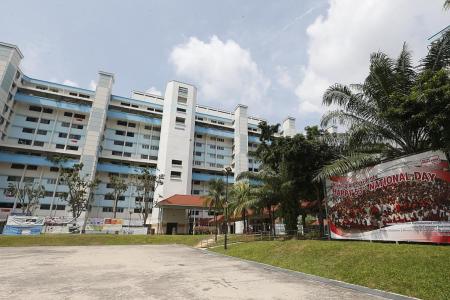It's all about the timing for HIP II, Vers to be effective: Experts
Coordination necessary for success: Experts, MPs
A programme to upgrade every Housing Board flat after 60 years should be planned such that it does not take place in blocks right before they undergo a new voluntary redevelopment scheme, said experts and MPs.
Their comments come a day after the National Day Rally, when Prime Minister Lee Hsien Loong announced the multi-billion dollar Home Improvement Programme (HIP) II. It upgrades all flats that are 60 to 70 years old for a second time.
HIP II will be launched in 10 years.
Meanwhile, flats that reach about 70 years of age can be taken back by the Government with a new Voluntary Early Redevelopment Scheme (Vers).
At the earliest, this will be 20 years down the road. Under Vers, residents in selected precincts can vote on whether to take up the Government's offer to buy back their flats.
Some have questioned how both schemes will be coordinated in terms of timing, for example, to avoid incurring expenses on a block for the HIP II, when a few years later, it could be slated for redevelopment.
Institute of Policy Studies senior research fellow Christopher Gee said: "HDB will need to plan and schedule when different blocks will be offered HIP II and when Vers is triggered... as there would not be much sense in offering HIP II just before triggering Vers.
The greatest effect of lease decay on the value of 99-year leasehold property is in the residual leasehold rights to the property itself, rather than its physical attributes.Institute of Policy Studies senior research fellow Christopher Gee
"Residents might be offered Vers first, and if the appropriate majority agree to it, then there would not need to be a HIP II programme offered."
CONDITIONAL
Singapore Management University economist Phang Sock Yong said HIP II could also be made conditional on blocks not being redeveloped for a certain number of years.
But she noted the schemes have different aims: "HIP helps to mitigate the erosion of asset value with age and Vers is used to phase redevelopment of estates as leasehold expiry approaches."
Both are said to potentially help address concerns over the hot topic of expiring leases.
They help assure owners that older flats' values can be preserved, said the National University of Singapore's Institute of Real Estate Studies director Sing Tien Foo.
He added: " It is a good signal from the Government to the market, that older flats could still have at least 30 to 40 years' economic values given the HIP II and Vers."
Yet, the expanded HIP, while providing greater certainty on what will happen to HDB leaseholds, may not completely allay concerns over lease decay.
"The greatest effect of lease decay on the value of 99-year leasehold property is in the residual leasehold rights to the property itself, rather than its physical attributes," said Mr Gee.
HIP II might, however, improve future cashflows over the remaining lease period by increasing the amenity value of the flat, he added.
This could be measurable by a rise in rentals after upgrading.
Apart from preserving asset value, HIP II helps maintain residents' living conditions.
Pasir Ris-Punggol Town Council chairman Zainal Sapari noted that repairs have a limited lifespan and will need to be done again to prevent flats from deteriorating.
This is why it provides reassurance to some people, like Bedok South resident Thayalan Sophia Malini, 43 - that she will have an affordable option for upgrading her four-room flat when she gets older.
"Our gates were replaced and our toilets were renovated," she said of her experience with HIP about five years ago.
"This flat is convenient for my family, and I intend to live here for the rest of my life. We may need to install more aids when I'm older, and we would have to pay a lot more if there were no HIP in store."
Get The New Paper on your phone with the free TNP app. Download from the Apple App Store or Google Play Store now


